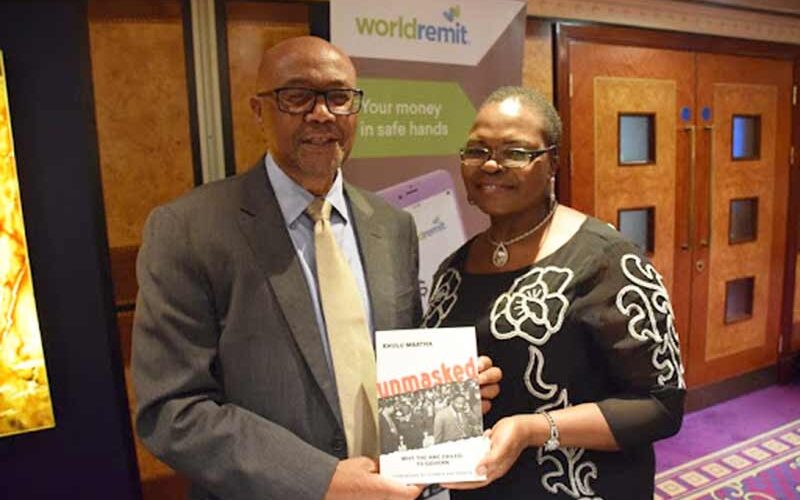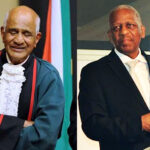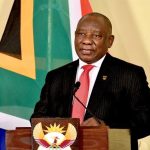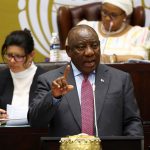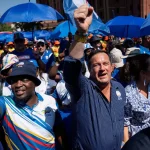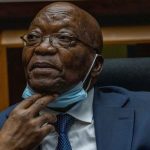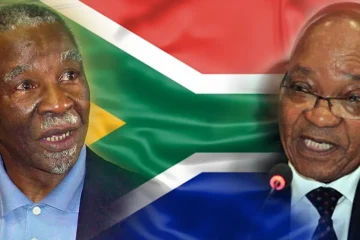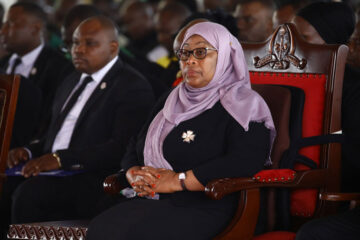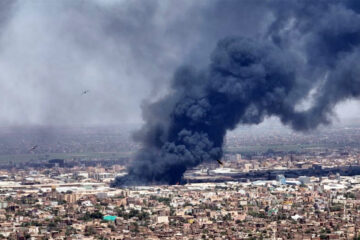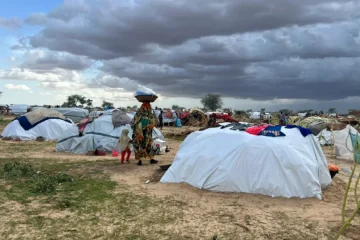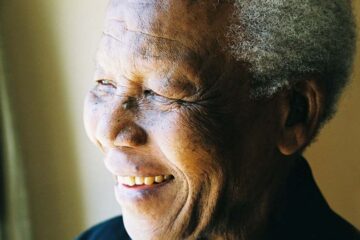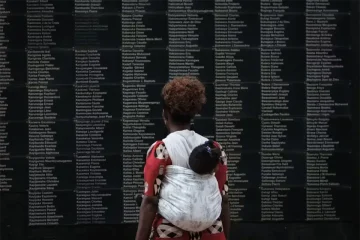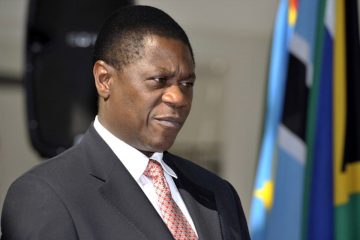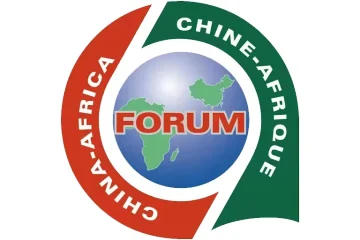KHULU MBATHA
The English and the Boers fought a war that was called the Anglo-Boer War, but in actual fact, it involved everyone – especially Africans, and it is now known as the South African War. After this experience of a very devastating battle, there was no way that any defeated group could venture to take up arms against Britain.
Left out of the deal of settlement, it is one of the main reason that when the founders of the African National Congress (ANC) came together in 1912, they made a clarion call to all Africans to come together to establish an organisation that will compel the rulers of the land to regard the Union of South Africa as a place for all its people, where there would be no coloniser and colonised, but one people, one nation, one country!
It was not the easiest of decisions to be taken then, given that black people were indigenous on this soil. But these leaders had travelled, they had been to Europe and the United States of America. They had seen democratic states and institutions being created and functioning given the limits of democracy of that time.
They called for injustice that was being meted out to them by the colonisers to come to an end. They were agents for change!
Their vision and foresight, was further strengthened by the realities of the 1950s when the Freedom Charter crystallised the idea of a united, non-racial, non-sexist, just and democratic South Africa.
The ANC is the first governing party in South Africa that has attempted to make the vision of the founders of the ANC a reality by addressing the needs of the majority of South Africa’s citizens through, for example, the provision of housing and a national health system.
This vision does not hang in the air nor is it without a foundation. My generation’s ideals were shaped and were greatly inspired by the resilience of men and women who had stood the test of time, men and women who in the face of grave adversity, decided they shall stand with the majority of the oppressed.
Andrew Moeti Mokete Mlangeni’s life was the embodiment of these virtues. He is one of those men and women, true stalwarts of the struggle, who never wavered when they had to choose between the people and saving their lives.
In my dedication to his life which I wrote after his death last month, I said that his generation came “…from different parts of the country and landed in the City of Gold [Johannesburg], they met, sometimes through coincidental encounters and developed long-lasting friendships and bonds.
“They were core founders of the Youth League. They went on to revolutionise the ANC and at the end they formed uMkhonto We Sizwe. They sacrificed their own freedoms and were also prepared to hang so that we can enjoy the fruits of a free South Africa.”
In the foreword of ‘The Backroom Boy, Andrew Mlangeni’s Story’ former President Kgalema Motlanthe wrote, ‘Om Andrew is among this crop of individuals moulded by their social circumstances who have in turn acted to change given circumstances, within the parameters of the collectively shared vision.”
At Bab’ Mlangeni’s funeral President Cyril Ramaphosa said, the times of the Mlangenis ‘was an era of tireless struggle, of sacrifice and service, of honour and integrity. It was an era of leaders who embodied the best in humanity…
“He was a product of the golden age of our struggle, when sacrifice and commitment to freedom was the only consideration that motivated leaders to be involved in the struggle…
“Until he drew his last breath, it was his firm and unwavering determination to ensure that the plentiful resources of our country would be used for the benefit of all its people.”
President Ramaphosa then posed this question, “What shall define this new era, our era?
Will it be an age of increasing prosperity and security for all?
Will it represent the realisation of the dream of the Freedom Charter, of a country that truly belongs to all who live in it, black and white?
Will it witness the emergence of a new generation of young leaders – women and men of extraordinary talent, integrity and resolve who dedicate their lives to the service of humanity?”
In all fairness, I believe that we cannot give answers to these questions without a ‘Kairos Moment’ of our times.
We shall recall that 35 years ago, in September 1985, a Kairos Document was penned by a group of mainly black South African theologians based predominantly in Soweto. It was a reaction to the state of emergency declared on 21st July 1985.
Today we have a State of Disaster, which was declared by President Cyril Ramaphosa on 15 March as a reaction to COVID-19. Unlike the State of Emergency of 1985, this was warmly welcomed by all South African citizens, as it was a measure to save lives.
In the midst of all this, our true being as South Africans has been exposed, by showing the nation and the world that we are leaders that are self-serving, and we use the language of poverty and radical transformation to achieve personal interests rather than what people want.
For this reason, I think everyone agrees that, as the President Ramaphosa noted, as he was writing as the President of the ANC in his letter to ANC members, under the headline:
LET THIS BE A TURNING POINT IN OUR FIGHT AGAINST CORRUPTION
“I write this letter to you, my fellow ANC member, as our movement and our country face one of the greatest challenges since the advent of democracy.
I am sure that you are aware that across the nation there is a sense of anger and disillusionment at reports of corruption in our response to the coronavirus pandemic…
“What has caused the greatest outrage is that there are private sector companies and individuals (including civil servants) who have exploited a grave medical, social and economic crisis to wrongfully enrich themselves…
“As the inheritors of the legacy of Luthuli, Tambo and Mandela, we must be honest with our people and ourselves. We must acknowledge that our movement, the African National Congress, has been and remains deeply implicated in South Africa’s corruption problem. We have to be sensitive to the concerns that are being raised by our people about our role as a movement in corrupt activities…
“On a hugely different scale, but with the same effect, is the capture of state institutions by public interests [and private sector] facilitated by politicians and officials at the highest level…
And “many of these institutions have been left deeply dysfunctional and some virtually destroyed. It has caused huge damage to the economy and to the capacity of the state.”
The President ends by saying, “Now is the time for action.”
Therefore, I want to say that there will be little or no action if we don’t declare this time our Kairos Moment. We must confront the nature of the conflict we face today. We are our own enemies and only we can liberate ourselves. Once we do this, we will be in a position as a nation to identify our own agents for change.
You see the courts of this land, including the Zondo Commission, can deal with the crimes that have been committed.
But what about the political and ethical issues? The courts can’t deal with this. The courts can’t involve themselves in political structures and say, this is morally wrong. They can’t say, ‘You have disobeyed the Integrity Commission of your own organisation, not once, not twice, but many times.’
It will be naïve to accept that this is an ANC phenomenon only, the whole of society is confronted by this.
Let me end by sending greetings to Aunt Sophia De Bruyn and MaGertrude Shope. Please continue to guide us!
Let me quote a lioness of our time. In October 2012 Kay Sexwale penned an “Open letter to the surviving Rivonia Trialists”. After the death of Bab’ Mlangeni she wrote another letter titled “Not in My Name” in which she writes,
“You were prepared to languish in prison for the rest of your lives to prove a moral point and to bring our liberation struggle to international attention in the 1960s.
“We owe it to you to fight… My generation cannot hand over the ANC to future generations in its current state.”
I say, and this is my addition, let our generation not handover South Africa to future generations in its current state!

